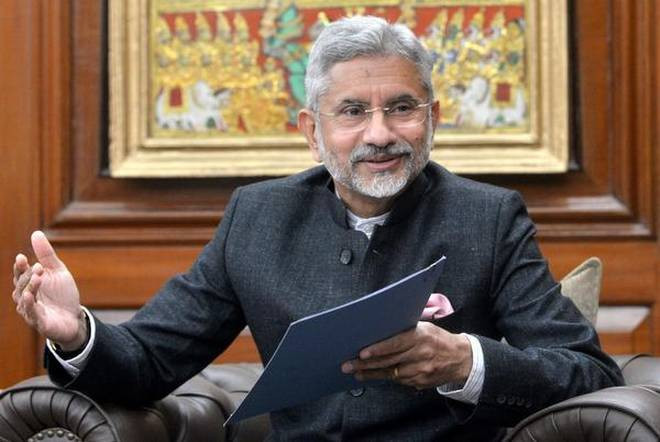Indian External Affairs Minister S Jaishankar has said that India and Nepal have decided to move ahead from its recent problems.
In an interview published on Thursday by The Hindu about his book titled 'The India Way: Strategies for an Uncertain World', Jaishankar acknowledges with Suhasini Haidar that there have been problems with Nepal in recent times but points out that the two countries have decided to move forward now.
Haider pointed how Jaishankar in his book says generosity and firmness must go hand in hand in the neighborhood and reminded how India has had a fractious relationship over Nepal's Constitution and Nepal recently brought out a map showing territories including Kalapani, Limpiyadhura and Lipu Lekh despite India's objections. Pointing how Indian officials are now visiting Kathmandu—Research and Analysis Wing (RAW) Samant Kumar Goel met Prime Minister KP Sharma Oli in October, Indian Army Chief Manoj Mukund Naravane then visited in November and Foreign Secretary Harsh Vardhan Shringla visited Nepal and resumed formal bilateral talks—despite Nepal standing firm, she asked him how he would judge the success of firmness.
"As I said, don’t take an incident as the ultimate yardstick of judgment. Problems will happen. I mean, show me any two neighbors between whom there are no problems. Most of our neighbors today are democracies. The point is, they have their politics, we have our politics, there will be issues. The question is, how do you manage it? How do you find the common points, mitigate the issues of friction? At the end of the day, for when the smoke clears after a year, two years, three years, you say, have I moved forward? And I would suggest, looking at the neighborhood, there is an enormous change," Jaishankar says in the interview.
"Since your questions focused on Nepal, I would say, yes, there was a period where we had issues, but I think we can clearly see in the last few weeks India and Nepal have decided [to move ahead] and it’s something mutual."
She also pointed out how India no longer objects to US Millennium Challenge Programs in Nepal or Sri Lanka; India is not just accommodative, but actually sees it as complimentary and asked if that is a reaction to the fact that China has become a big player now in the region.
Jaishankar responded the change is more reflection of the change of India's relationship with the United States than other things. He pointed how the US in the past had allied with China and Pakistan, and reasoned that the current Indian attitude toward US involvement in the sub-continent is due to India now becoming an US ally.

